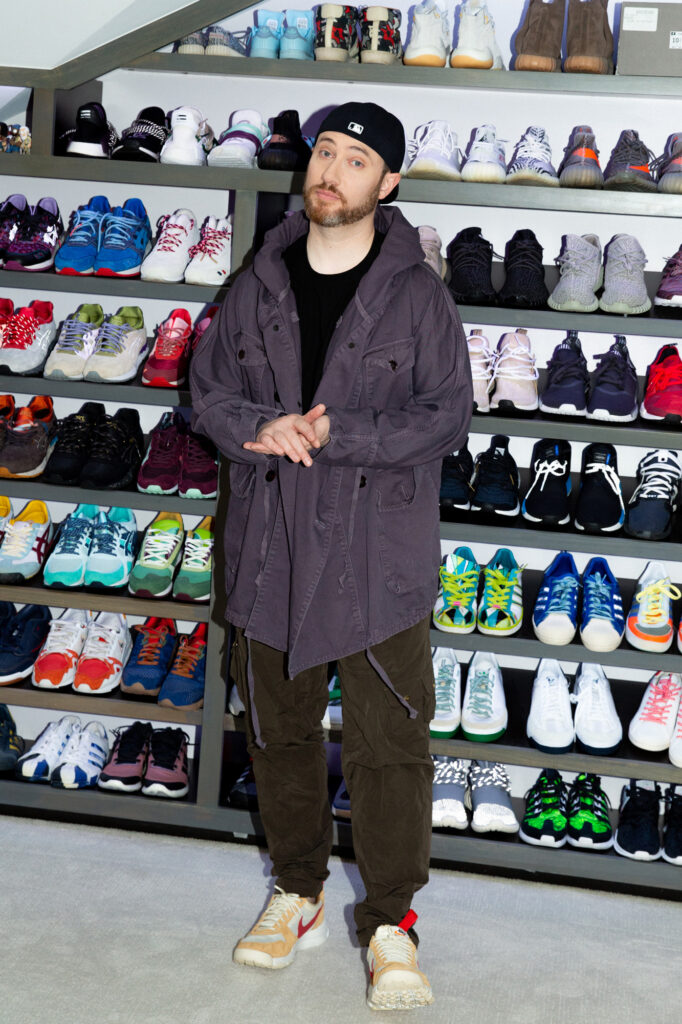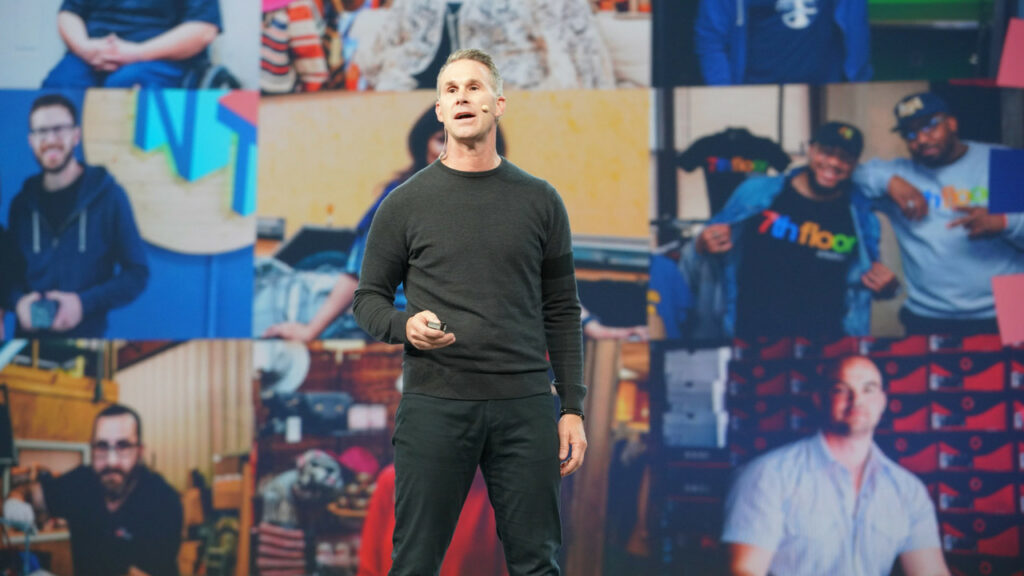StockX CEO Josh Luber TedTalk
I first became aware of StockX CEO Josh Luber long before I was any more than a casual fan of trainers. My attention was drawn to him during an 11-minute TedTalk hosted by himself. Which came across more like a pitch than a lecture. He painted a picture of a potential future for us all. One where any tradeable commodity could be reimagined in a stock market style format. Using the success of the secondary market for trainers as the crux of his hypothesis. He made me realise in 2015 what I think everyone in 2019 now knows about trainers. The trading and collecting of lifestyle footwear has long surpassed a niche demographic of enthusiasts and nostalgia searching fans. Instead, itis actually a huge business opportunity.
Josh Luber spoke and looked like someone I would identify as a “sneakerhead”. I think that is of his own admission. I was also acutely aware of the work he was doing with data. In an attempt to make others with a shared passion for informed when entering the resale market. By combining stock market principles to something totally unregulated like trainer resale. You allow people to make much more informed choices when buying and selling. Effectively giving everyone the tools to succeed with even the most casual of knowledge bases.

Luber steps down from CEO role
This is essentially the foundations for which StockX could flourish. The company of which Josh Luber cofounded and until recently was CEO. The Detroit spawned resale platform has recently been valued at $1 Billion. Has been hit by the news that although Luber will remain on the board as the public face of the company. The position of CEO will be filled by Scott Cutler formerly Vice President of eBay.
Stockx since 2015
The rate at which StockX has been able to grow. From virtually a startup in 2015 to a $1 Billion valuation and market leading status in 2019 is a testament to not only the strength of their vision but also the evolution of the secondary market for trainers. When Josh Luber quoted a statistic that in 2015, Nike customers made more money on the resale market than the net revenue of Nike’s most significant competitors at the time Sketchers, it really does hammer home the potential of the secondary market. A realisation that has been cleverly exploited by Nike and since 2015, Adidas, not as a way to create revenue, but as a tool to grow hype surrounding every release.
Nike and Adidas could kill the resale market stone dead tomorrow if they wanted. All they’d have to do is release more shoes, but that isn’t in their interest. Keeping things limited drives the fanfare behind them, and now with resellers treating products much more like stock. The coveted nature of these shoes aren’t just valued as such for aesthetic qualities, for example. Every pair is very much seen as an investment in itself. One that could, in a lot of cases turn incredibly lucrative over time.
Scott Cutler at StockX
The sheer speed of StockXs rise is, in my view, one of the principle reasons why StockX CEO Josh Luber has decided to step down from the position in favour of Scott Cutler. Cutler garners significant experience growing and maintaining the growth of one of the worlds biggest online marketplaces in eBay. As well as holding leadership positions at StubHub the ticket resale platform and expertise from working within the New York Stock Exchange. His help was enlisted to help manage the overwhelming evolution of this company. Which has essentially mirrored the meteoric rise of the whole trainer resale industry. An industry which has since spawned multiple successful platforms from within it, all essentially competing in the same space. With competition fierce wherever you look. You can see how managing a company like StockX is both incredibly challenging and extremely stressful.

Stock Market of Things
The model StockX has created is one Josh Luber genuinely believes can be applied to any and every retail commodity. The idea of a ‘Stock Market of Things’ put the emphasis on supply and demand. A concept which is actually, if you think about it, a more primitive, and therefore a natural solution to consumerism today than the current model. Price is dictated by the customer. The more you want a commodity, the more you pay. The rarer the commodity, naturally the more you pay. What this would inevitably create is a much more fluid environment for the consumer in which a brand could not dictate to you a price. Instead, as Nike and Adidas do at the moment, manipulate the market with exclusivity to directly impact revenue.
I don’t necessarily believe blurring the lines between the retail and secondary markets would be a particularly good idea. People wouldn’t feel like a world where everything from coco pops to brown bread could be feasibly limited by brands to spike their values belongs in anything other than a dystopian future film. I do think there is room in the market for both to coexist when it comes to collectable items like trainers, watches and handbags.
What StockX and all their many competitors do well, is cultivate a demand that has been created by the retailers and brands. In an attempt to regulate in some way the most unregulated of things, a market place. Giving power back to the consumers. StockX CEO Josh Luber stepping down might be the headline of the story, but what he has helped grow is an industry which is now a lot more than a collection in someone’s mum’s basement. This stuff is worth millions.
